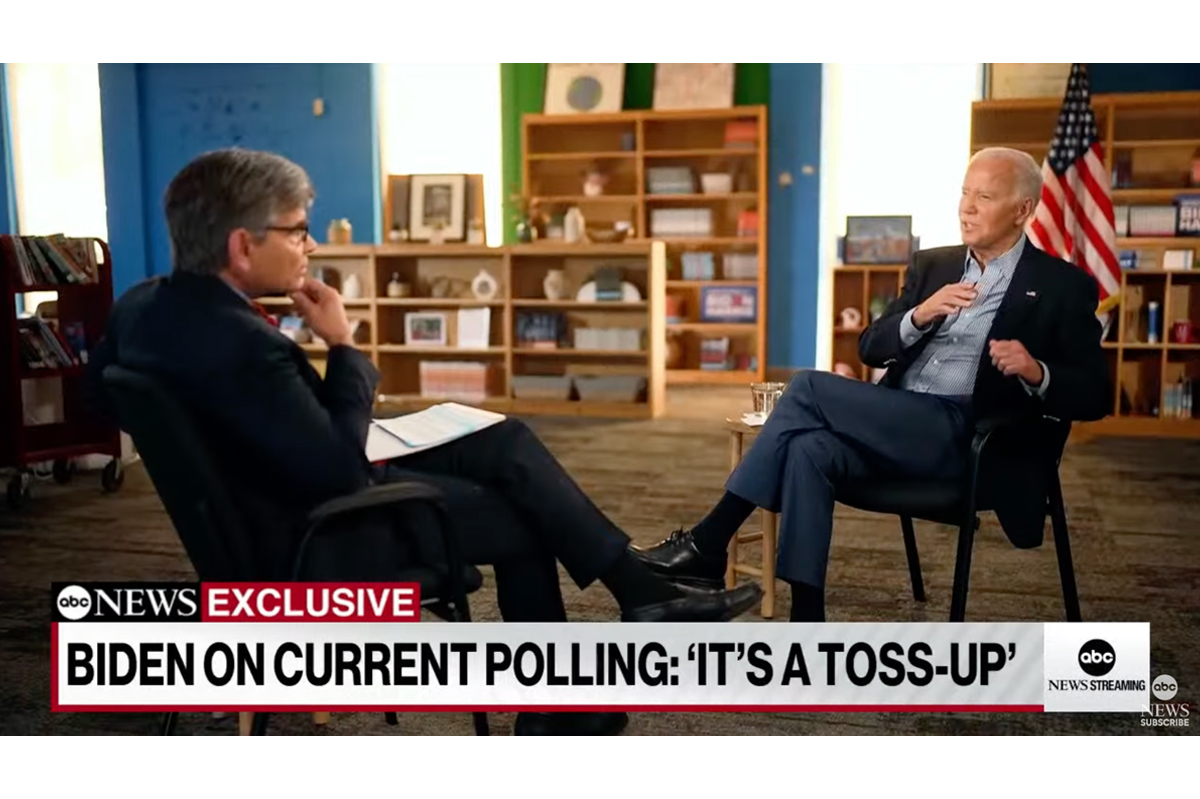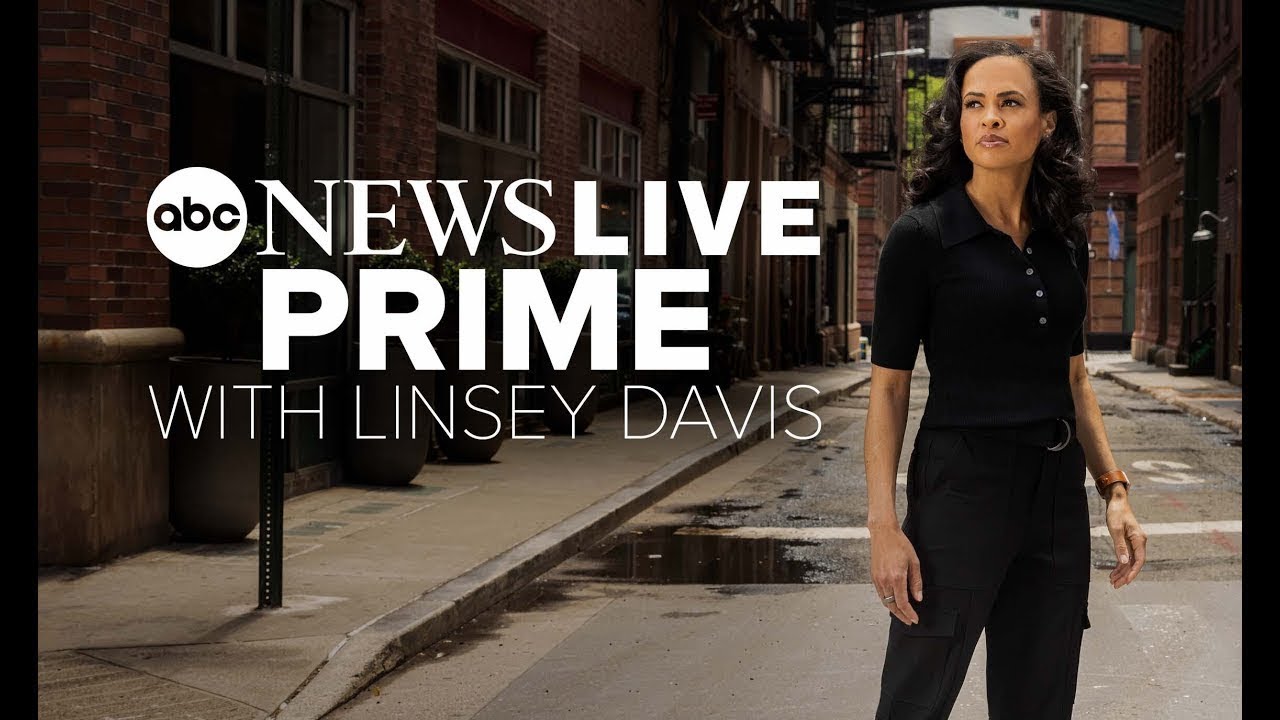Biden’s Economic Policies

Biden abc interview – President Biden’s economic policies have focused on addressing the economic challenges facing the United States, including inflation, unemployment, and the national debt. His policies have included a combination of fiscal stimulus, infrastructure spending, and regulatory changes.
Impact on Inflation
Biden’s economic policies have had a significant impact on inflation. The American Rescue Plan, passed in March 2021, provided $1.9 trillion in fiscal stimulus, which helped to boost economic growth and reduce unemployment. However, it also contributed to rising inflation, as increased demand for goods and services outpaced supply.
In the recent ABC interview, Biden reaffirmed his commitment to the NATO alliance. He emphasized the importance of collective security and the need for member states to work together to address common challenges. His remarks echoed those made in his NATO speech , where he outlined a vision for a stronger and more united alliance.
Biden’s unwavering support for NATO underscores his belief in the vital role it plays in ensuring the security and stability of Europe.
The Federal Reserve has responded to rising inflation by raising interest rates. This has helped to slow economic growth and reduce demand, but it has also made it more expensive for businesses to borrow money and invest.
Impact on Employment
Biden’s economic policies have had a positive impact on employment. The unemployment rate has fallen from 6.3% in January 2021 to 3.5% in December 2022, the lowest level since 1969.
However, some economists argue that the low unemployment rate is due more to a shortage of workers than to strong economic growth. They point to the fact that labor force participation rate has not fully recovered to pre-pandemic levels.
In a recent interview with ABC News anchor George Stephanopoulos , President Biden discussed the ongoing COVID-19 pandemic and the challenges facing the nation. Stephanopoulos, known for his incisive questioning, pressed Biden on a range of issues, including the administration’s response to the pandemic and the upcoming midterm elections.
Biden responded with characteristic candor, providing insights into his thinking and the direction of his presidency.
Impact on National Debt
Biden’s economic policies have also had a significant impact on the national debt. The national debt has increased by over $4 trillion since Biden took office, reaching a record high of $31.3 trillion in December 2022.
The increase in the national debt is due to a combination of factors, including the COVID-19 pandemic, the American Rescue Plan, and the Infrastructure Investment and Jobs Act. Some economists argue that the increasing national debt is unsustainable and will eventually lead to higher interest rates and inflation.
Potential Long-Term Effects
The long-term effects of Biden’s economic policies are still uncertain. Some economists argue that his policies will lead to higher inflation, higher interest rates, and a larger national debt. Others argue that his policies will lead to stronger economic growth, lower unemployment, and a more sustainable fiscal path.
Only time will tell what the long-term effects of Biden’s economic policies will be.
Biden’s Foreign Policy: Biden Abc Interview
Biden’s foreign policy approach has been characterized by a focus on multilateralism, diplomacy, and a rules-based international order. He has sought to rebuild alliances and partnerships that were strained during the Trump administration and has emphasized the importance of international cooperation on issues such as climate change, nuclear non-proliferation, and global health.
Biden’s foreign policy has been shaped by a number of factors, including the rise of China, the ongoing war in Ukraine, and the challenges posed by climate change. He has also sought to address the legacy of the Trump administration’s foreign policy, which was often seen as isolationist and transactional.
Dealing with China, Biden abc interview
Biden has described China as the United States’ “most consequential strategic competitor.” He has sought to compete with China economically and militarily, while also cooperating on issues of mutual interest, such as climate change and nuclear non-proliferation.
Biden has imposed tariffs on Chinese goods, sanctioned Chinese officials, and increased military spending in the Indo-Pacific region. He has also worked to strengthen alliances with countries in the region, such as Japan, South Korea, and Australia.
Dealing with Russia
Biden has described Russia as a “threat to our national security.” He has imposed sanctions on Russia, expelled Russian diplomats, and provided military aid to Ukraine.
Biden has also worked to strengthen NATO and has sought to build a coalition of countries to pressure Russia to end its war in Ukraine.
Dealing with the Middle East
Biden has sought to end the war in Yemen, which has been described as the world’s worst humanitarian crisis. He has also worked to revive the Iran nuclear deal and has sought to build a regional coalition to counter Iran’s influence.
Biden has also sought to strengthen ties with Saudi Arabia and other Gulf states. He has also worked to promote democracy and human rights in the region.
Biden’s Social Agenda

President Biden has prioritized a comprehensive social agenda that aims to address key challenges facing American society, including healthcare, education, and climate change. His proposals have sparked both support and opposition, with varying degrees of progress and setbacks in their implementation.
Healthcare
Biden has proposed expanding access to affordable healthcare, reducing prescription drug costs, and strengthening the Affordable Care Act (ACA). He has made some progress in these areas, such as expanding Medicaid coverage and providing subsidies for health insurance premiums. However, efforts to lower drug prices and create a public health insurance option have faced resistance from Republicans and the pharmaceutical industry.
Education
Biden’s education agenda focuses on increasing access to quality education, making college more affordable, and addressing racial disparities in education. He has proposed universal pre-kindergarten, increased funding for Historically Black Colleges and Universities (HBCUs), and student loan forgiveness. While some progress has been made, such as the expansion of Pell Grants, major proposals like free community college and debt cancellation have stalled in Congress.
Climate Change
Biden has made climate change a top priority, rejoining the Paris Agreement and setting ambitious goals for reducing greenhouse gas emissions. He has invested in clean energy, infrastructure, and job training programs aimed at transitioning to a green economy. However, his agenda has faced challenges from Republicans and fossil fuel interests, who oppose policies that they believe will harm the economy.